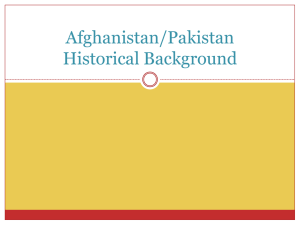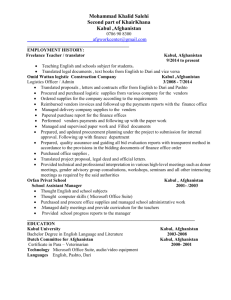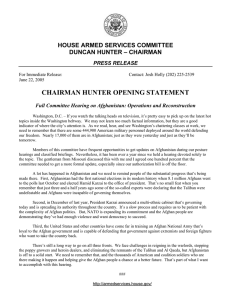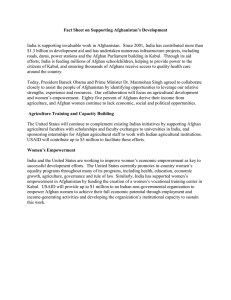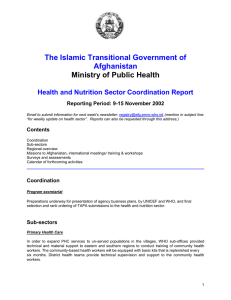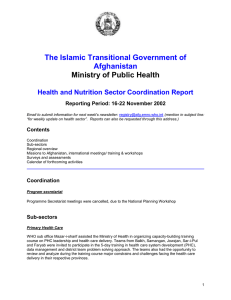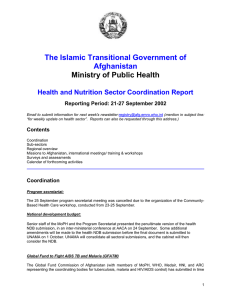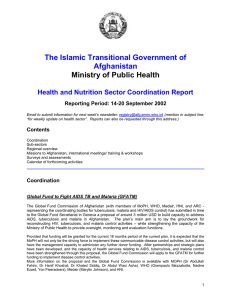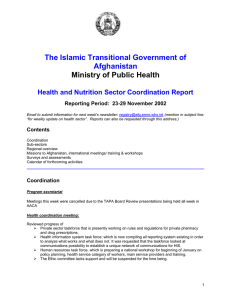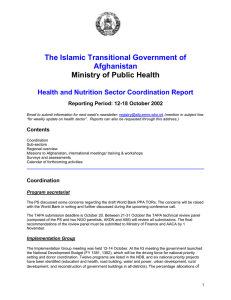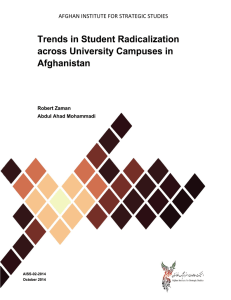Successful Strategies for Afghan Faculty Members Studying Abroad
advertisement
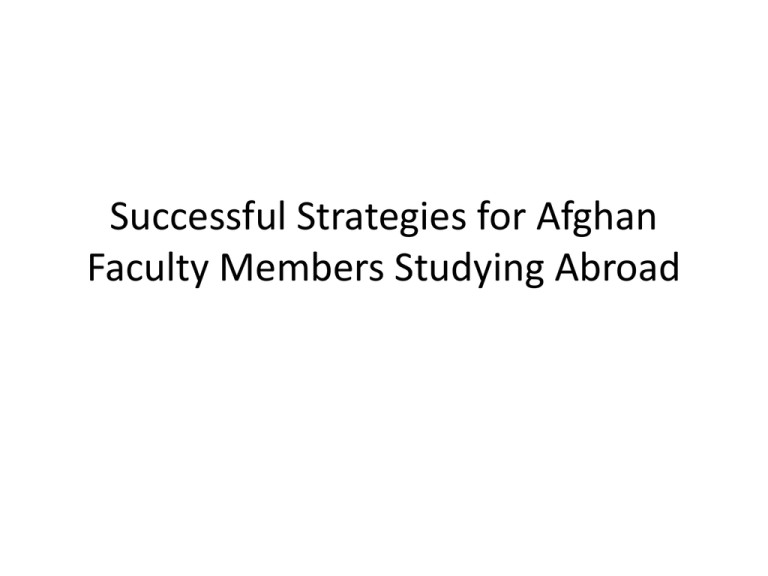
Successful Strategies for Afghan Faculty Members Studying Abroad Afghanistan University Linkages with North American Institutions of Higher Education: Lessons Learned and the Way Ahead January 25-26, 2011 Ball State University-Indianapolis Center Indianapolis, In Presenters Dr. Yar Ebadi, Dean of College Of Business Administration, Kansas State University Dr. Julie Barker Lebo, Educational Consultant Linkages • • • • • Kabul University, Kabul, Afghanistan Balkh University, Mazar-i-Sharif, Afghanistan Selcuk University, Konya, Turkey Birla Institute of Technology, Pilani, India Kansas State University, Manhattan, USA Funding • Strengthening Higher Education Project, Ministry of Higher Education, Islamic Republic of Afghanistan (funded by the World Bank) Faculty Goals • A significant number of lecturers at Kabul and Balkh Universities in the Faculties of Engineering and Languages and Literature who have only a bachelor’s degree earn a Master’s degree at a foreign university • The lecturers become proficient in English • The lectures acquire skills in best-practice teaching methods • The lecturers become current in their discipline • The lecturers learn how to conduct academic research Successful Outcomes of the Project • 12 MA graduates • Continual presence of Kansas State faculty in Afghanistan • Curricular revisions • Assistance with student advising and placement • Use of Lab/equipment assistance • Renewed interest in partners’ countries Outcomes, cont. • • • • Academic linkages Research collaboration Grant opportunities Publishing opportunities Strategies for Selection of Faculty • English language proficiency • Academic ability to meet international standards • Openness to meeting and working with others • Ability to be away from their families for at least three years • Financial means to be abroad for at least three years Strategies, cont. • Willingness to try new teaching methods • Flexibility • Willingness to work hard academically. Successful Strategies for Faculty While They are Studying • • • • • • • • On campus housing Meal plan Support for health issues Adequate academic advising Plug students into existing campus resources Financial advising regarding monthly budget Relationships Support for academic success: – Understanding a syllabus – Study skills – Test prep Strategies, cont. – Time management – Homework – Writing skills Strategies for Faculty Members Upon Return to Afghanistan • On-going professional development • Opportunities for professional and academic advancement • Utilization of new-found knowledge • Research capability • Publishing opportunities • Capability of participation in professional organizations Strategies, cont. • • • • Grant opportunities Professional pay scale with merit pay Enhanced working conditions Leadership roles within the university and civil society • Opportunities for university partnerships and fellowships • Business and civil partnerships Conclusion • It is important to select the candidates for study abroad carefully, taking into account predictors of success • It is often more convenient and less expensive for Afghan university teachers to earn Master’s degrees in other Asian countries • It is important to diversify the places where the faculty members receive their degrees.
